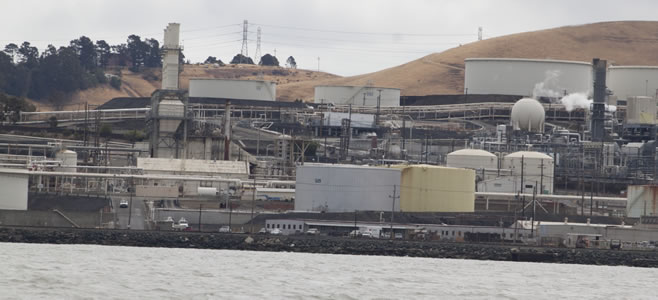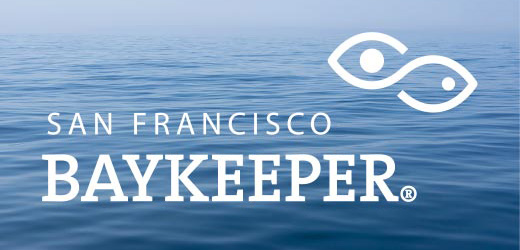
In 1998, Baykeeper and our partners won a great victory for San Francisco Bay when we compelled two oil refineries to stop contaminating the Bay with selenium. The refinery owners, oil giants Unocal and Exxon, also paid $4.8 million in penalties. The funds were used for projects that included restoring 45 square miles of Bay wetlands and habitat along creeks and rivers that flow into the Bay.
This year Baykeeper celebrates 25 years of successful action to protect San Francisco Bay from pollution. In honor of our 25th anniversary, we are highlighting key victories for the Bay over the course of our history, including this campaign to stop a major source of Bay pollution from local oil refineries.
Our campaign to clean up selenium began in the early 1990s, when the Regional Water Quality Control Board identified this toxic substance as a pollutant that impaired the entire Bay. Selenium is a trace element in crude oil. The main sources of selenium contamination in the Bay at that time were the Unocal and Exxon oil refineries.
Clams and other small Bay creatures ingest selenium, and when birds and fish eat those smaller creatures, selenium accumulates in their bodies at higher concentrations. Excess selenium causes gross deformities and death in birds, and it poses similar dangers for people who eat selenium-contaminated seafood.
Baykeeper and a coalition of environmental organizations filed suit against the refineries under the Clean Water Act in 1994. Our partners in this legal action included Citizens for a Better Environment, Save the Bay, The Bay Institute, and the Santa Clara Valley Audubon Society.
Over the next four years, the refineries fought the suit, and Baykeeper won at every level of the federal court system. Unocal forced the lawsuit all the way to the U.S. Supreme Court, and Baykeeper won there, too. The refineries were required to immediately reduce their selenium pollution of the Bay to below 50 parts per billion, a limit set under the Clean Water Act.
The $4.8 million in penalties paid by the refineries was to partly mitigate the damage from their years of selenium pollution. Each refinery had violated the Clean Water Act thousands of times. In addition to Bay wetlands restoration, the funds were used for projects conducted by other Bay Area nonprofits to improve San Francisco Bay’s water quality and conduct research on Bay pollution.
Today, Baykeeper continues our efforts to rein in pollution from oil refineries. We are currently taking action to halt oil industry plans for a major expansion of refineries on the Bay in order to process millions of barrels of oil for export to other states and countries. A significant increase in oil storage and processing along the Bay’s shores could drastically raise the risk of oil spills into the Bay and its watershed. We will keep working for tighter controls to prevent contamination of the Bay from the region’s oil refineries.
Photo by Susie Biehler
